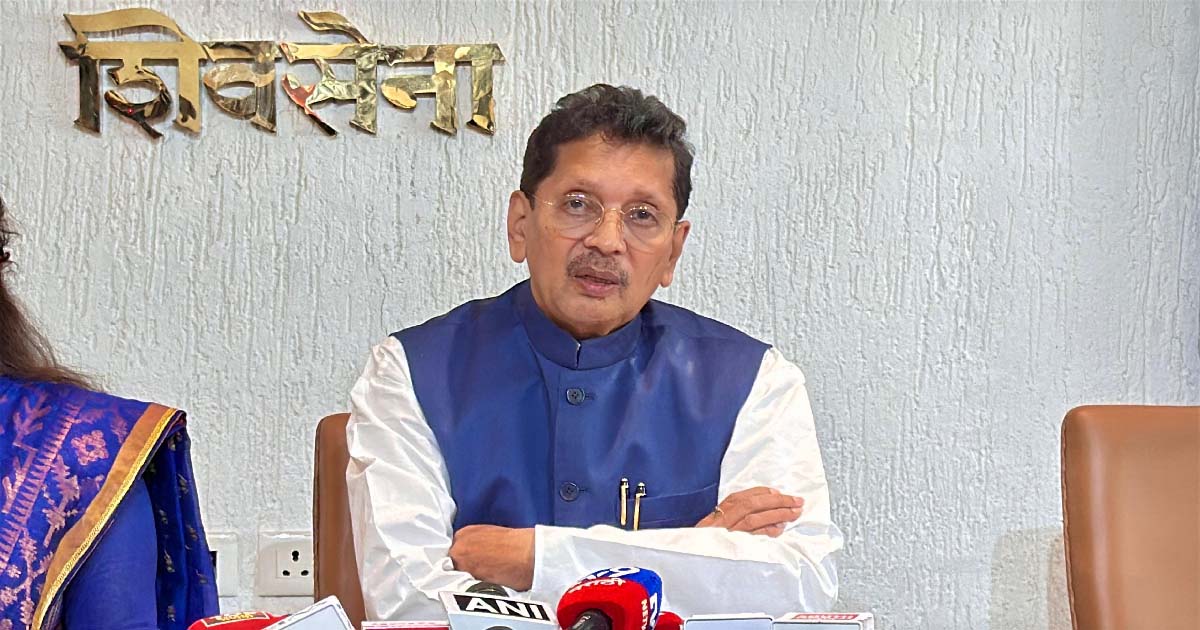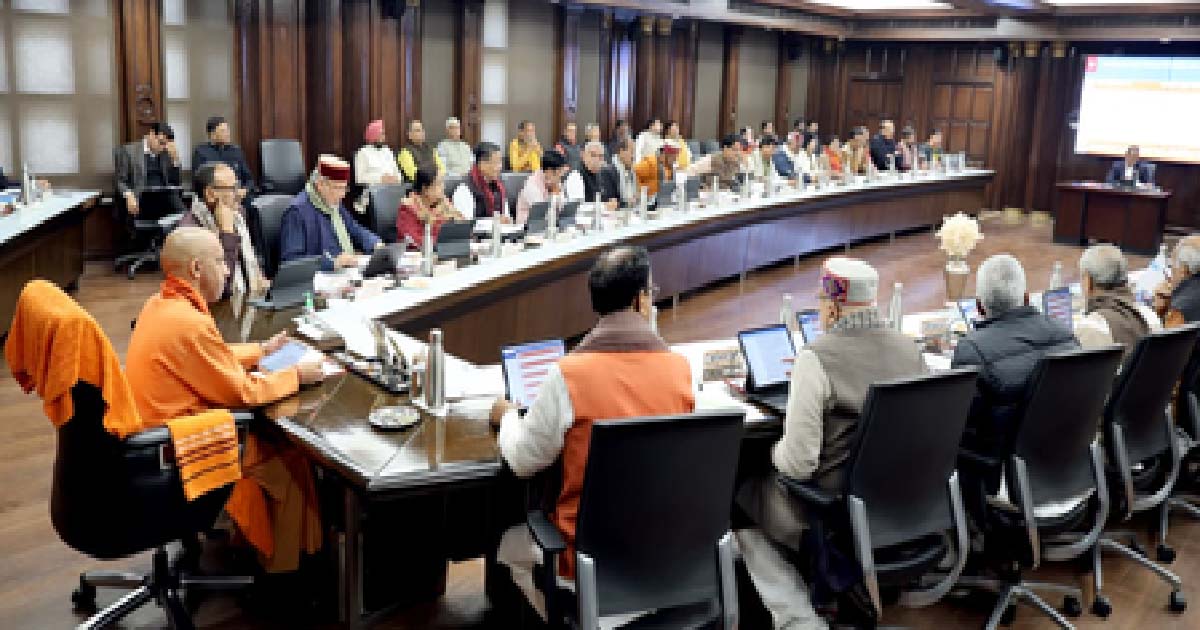National News
Punjab CM invites Sidhu for talks to sort out differences

Punjab Chief Minister Charanjit Singh Channi on Wednesday said he has spoken to Navjot Singh Sidhu and invited him to have a chat and sort out differences, if any.
His reaction comes a day after Sidhu resigned as the state Congress president, saying he will fight for truth till his last breath as the fight is for principles that he won’t compromise with.
“Whoever is party president is head of the family. I had called him and told him that the party is supreme. I have spoken to him on phone and told him to let’s sit, talk it out and resolve the issue,” Channi told the media here.
He said that as sought by the party high command, the government is appointing a dedicated team of public prosecutors and lawyers to handle sensitive cases like the desecration of a religious text and the subsequent police firing.
“I will fight for truth until my last breath,” Sidhu said in a video message posted on his Twitter handle on Wednesday.
“It is not a personal battle but a fight for principles. I won’t compromise on principles,” Sidhu said categorically.
Without mincing words, he said he would not accept tainted ministers being brought back into the newly constituted state cabinet led by Charanjit Singh Channi, a first-timer Scheduled Caste Chief Minister in the state.
In the video message in Punjabi, the cricketer-turned-politician, who said his only religion is to make people’s lives better, said he had fought for justice and for Punjab’s agenda.
“What I witness is a compromise with issues, agenda in Punjab. I can’t disguise high command nor can I let them be disguised,” he said.
“I don’t have any personal rivalry with anyone; 17 years of my political career has been for a purpose, to make difference, to take a stand and to make people’s lives better. This is my only religion,” he said, adding, he will continue fighting for truth till his last breath.
Unhappy over the first expansion, allocation of portfolios and appointments on crucial posts, including the Advocate General, Sidhu on Tuesday resigned from his post after remaining at the helm for 71 days.
Mumbai Press Exclusive News
If Uddhav Thackeray is elected unopposed then everything is fine, if someone else is elected then it is wrong: Deepak Kesarkar

Mumbai: During the municipal elections, the leaders of the Uddhav Thackeray group are constantly trying to spread chaos. Sometimes they are spreading wrong information and sometimes they are doing politics in the name of Chhatrapati Shivaji Maharaj. Former Shiv Sena minister and MLA Deepak Kesarkar expressed his strong displeasure and reacted strongly to this irresponsible statement of the UBT. In a press conference held in Mumbai, Deepak Kesarkar said that the UBT leaders are busy defaming Maharashtra. They do not have any development plan, hence they are constantly making misleading and unnecessary statements. Shiv Sena national spokesperson Shaina NC was also present at the press conference.
Deepak Kesarkar questioned the UBT leaders and said that if Uddhav Thackeray can be elected unopposed, why not other candidates? It is wrong to repeatedly question the election process. The Election Commission works with complete transparency and under this transparency, all the candidates were elected unopposed. UBT has no development agenda, while Mahayoti is moving forward with development issues, which is why people have faith in Mahayoti.
Reacting strongly to Sanjay Raut’s statements, Deepak Kesarkar said that Chhatrapati Shivaji Maharaj belongs not only to Maharashtra but to the entire country. The kind of politics Sanjay Raut is playing in the name of a great personality shows that his health is still not good. He should re-evaluate himself so that he can stop making such absurd statements.
He added that Chhatrapati Shivaji Maharaj was given the highest honour during the tenure of Prime Minister Narendra Modi. Shivaji Maharaj’s emblem was included in the Indian Navy’s emblem, a move that no government had done before.
Shiv Sena national spokesperson Shaina NC targeted UBT and said that in the last 25 years, Mumbai has been full of potholes. However, now Shiv Sena central leader and Deputy Chief Minister Eknath Shinde has pledged to make Mumbai pothole-free. The work has started, and by 2027, all the roads of Mumbai will be pothole-free.
He added that a detailed blueprint for Mumbai was prepared in an important meeting between Deputy Chief Minister Eknath Shinde and Transport Minister Pratap Sarnaik. Under this blueprint, several important decisions related to roads and transportation have been taken, which will provide significant relief to the people of Mumbai.
National News
Maharashtra Municipal Corporation Elections 2026: Chief Election Observer Reviews Poll Preparedness In

Palghar: With the election programme for the Vasai–Virar Municipal Corporation General Elections 2026 announced by the State Election Commission, preparations for the polling process were reviewed on Monday by the Chief Election Observer, Pradeep P.
Polling for the Vasai–Virar Municipal Corporation will be held on January 15, 2026. In this context, a review meeting was convened at the Municipal Corporation headquarters under the chairmanship of the Chief Election Observer to assess the readiness of the administration for the smooth conduct of elections.
The meeting was attended by Municipal Commissioner and Chief Election Officer Manojkumar Suryawanshi (IAS), Additional Commissioner (Elections) Sanjay Herwade, Additional Commissioner Deepak Sawant, all ward-wise Returning Officers, Chief Accounts and Finance Officer Indrajit Gore, Deputy Commissioner of Police Pournima Chaugule-Shringi, Deputy Commissioner of Police Suhas Bavche, Superintendent of Police (State Excise) Bargaje, City Engineer Pradeep Pachange, along with all Deputy Commissioners, Executive Engineers and department heads of the Municipal Corporation.
During the meeting, officials from the Police Department and State Excise Department presented details regarding security arrangements, inspection drives, enforcement of the Model Code of Conduct, and security measures for strong rooms. The Chief Election Observer directed the police administration to ensure comprehensive planning and effective measures to maintain law and order throughout the election period.
The Observer was also briefed on the procedures followed during the scrutiny and acceptance of nomination papers. Ward-wise Returning Officers presented information on polling arrangements, including the number and facilities of polling stations, deployment and training of polling staff, vehicle arrangements, security planning, availability and distribution of EVMs, and the establishment and security of strong rooms.
Further, the Municipal Corporation shared details on staff deployment, distribution of election materials, voter awareness initiatives, implementation of the Model Code of Conduct, and medical facilities to be provided at polling centres. The Chief Election Observer issued necessary instructions to ensure that the polling process is conducted in a smooth, transparent and orderly manner.
Expressing satisfaction over the preparations and measures undertaken so far, the Chief Election Observer appreciated the coordinated efforts of the Municipal Corporation and the police administration in ensuring free and fair elections.
National News
Rural jobs: UP CM Adityanath criticises Congress for opposing VB-G RAM G Act

Lucknow, Jan 6: Uttar Pradesh Chief Minister Yogi Adityanath said on Tuesday that the Viksit Bharat – Guarantee for Rozgar and Ajeevika Mission – Gramin (VB-G RAM G) Act is going to prove to be a milestone for achieving Viksit Bharat 2047 and hit out at the Congress and its allies for criticising the new rural job law.
Addressing mediapersons, the Chief Minister said the VB-G RAM G law will boost rural infrastructure and development in states, as a precursor to building a developed Bharat.
“The empowerment of the rural economy and farmers and workers is needed to achieve the vision of Viksit Bharat 2025,” said CM Adityanath, congratulating Prime Minister Narendra Modi for the revolutionary law.
Chief Minister Adityanath said, “The Congress and its allies are raising various questions regarding this important legislation. It is unexpected that, in the interest of the nation, workers, farmers, and rural development, this crucial step should receive full support and appreciation. The legislation reflects the government’s commitment, and people should acknowledge the Prime Minister and the NDA for this initiative…”
He said fake job cards, weak social audits and administrative shortcomings were plaguing the earlier rural job scheme.
The need for calling the media briefing arose as people who ruled the country for a long period, looted the resources and forced the poor to starve to death, are opposing the VB-G RAM G law as they fear that they would be “exposed” if they praise such a revolutionary reform, he said.
“The people will question them as to why they did not carry out the reform when they were in power,” he said, claiming that the opposition bloc is supporting its old “corruption-riddled” formula instead of thanking PM Modi for the revolutionary reform.
He said the Congress-era rural job scheme was a total “failure” as it could not create a sustainable mechanism for building durable assets.
“Therefore, under the new amendment, the employment guarantee has increased from 100 days to 125 days. Wages will now be paid every week; workers will no longer have to wait months or years. If a labourer works during the week, payment will be made weekly, and if there is any delay, compensation will also be provided,” he said.
Calling the new law a boon for the state, Chief Minister Adityanath said, “Uttar Pradesh has more than 57,600 gram panchayats, and if we talk about revenue villages, the state has over 1,05,000 revenue villages. Even today, nearly 60 to 70 per cent of Uttar Pradesh’s population lives in rural areas. Uttar Pradesh is also known as the food basket of India, and naturally, farmers and workers play a crucial role in sustaining the country.”
-

 Crime3 years ago
Crime3 years agoClass 10 student jumps to death in Jaipur
-

 Maharashtra1 year ago
Maharashtra1 year agoMumbai Local Train Update: Central Railway’s New Timetable Comes Into Effect; Check Full List Of Revised Timings & Stations
-

 Maharashtra1 year ago
Maharashtra1 year agoMumbai To Go Toll-Free Tonight! Maharashtra Govt Announces Complete Toll Waiver For Light Motor Vehicles At All 5 Entry Points Of City
-

 Maharashtra1 year ago
Maharashtra1 year agoFalse photo of Imtiaz Jaleel’s rally, exposing the fooling conspiracy
-

 National News1 year ago
National News1 year agoMinistry of Railways rolls out Special Drive 4.0 with focus on digitisation, cleanliness, inclusiveness and grievance redressal
-

 Maharashtra1 year ago
Maharashtra1 year agoMaharashtra Elections 2024: Mumbai Metro & BEST Services Extended Till Midnight On Voting Day
-

 National News1 year ago
National News1 year agoJ&K: 4 Jawans Killed, 28 Injured After Bus Carrying BSF Personnel For Poll Duty Falls Into Gorge In Budgam; Terrifying Visuals Surface
-

 Crime1 year ago
Crime1 year agoBaba Siddique Murder: Mumbai Police Unable To Get Lawrence Bishnoi Custody Due To Home Ministry Order, Says Report






















